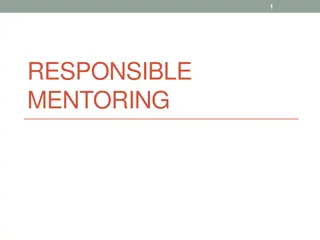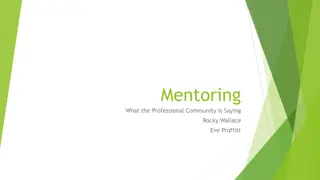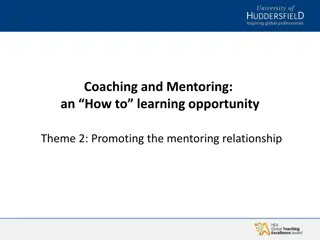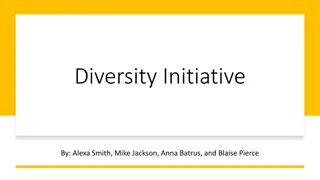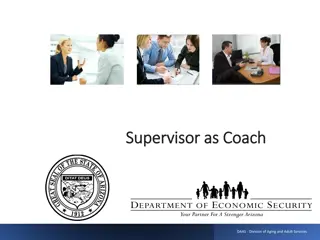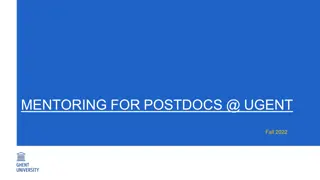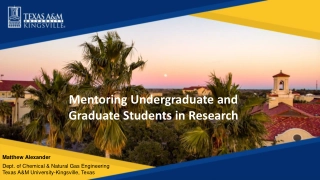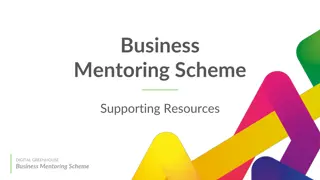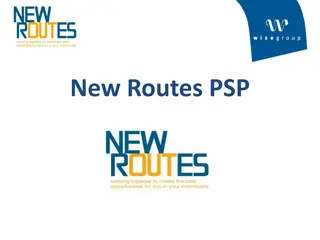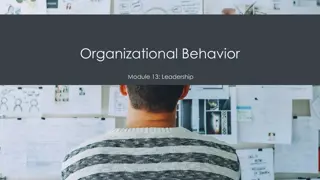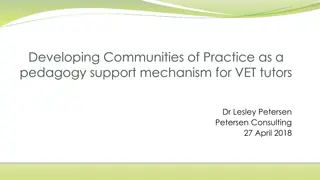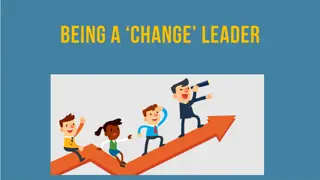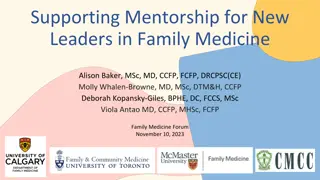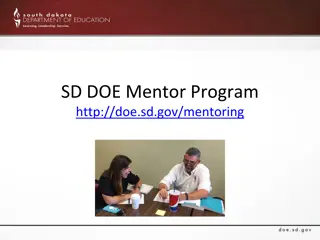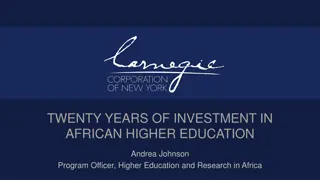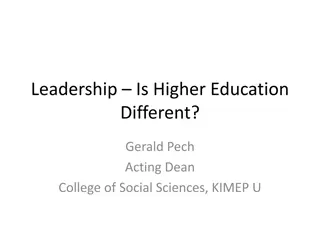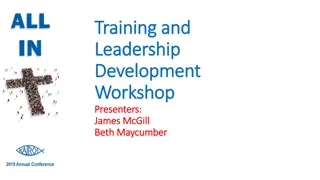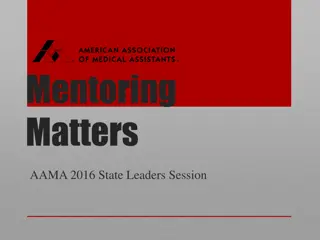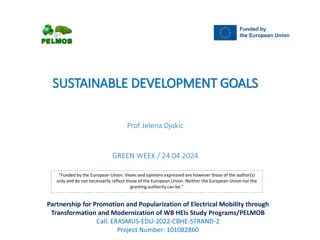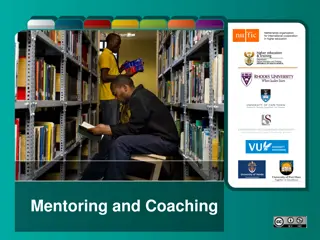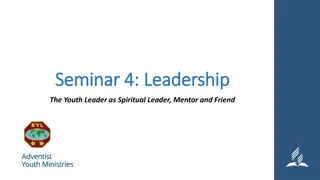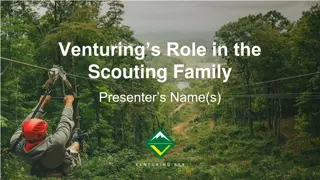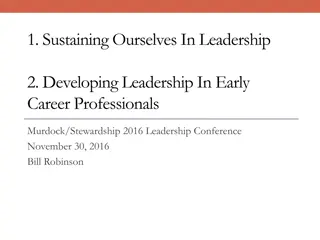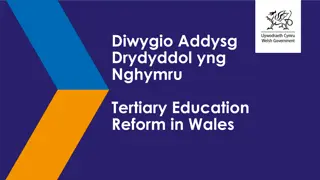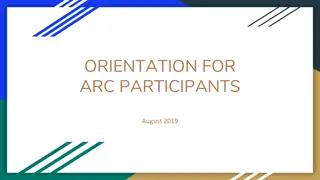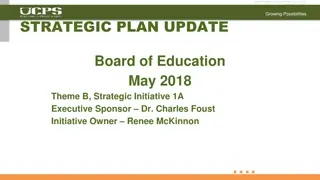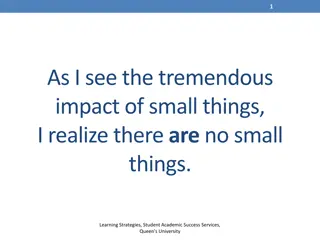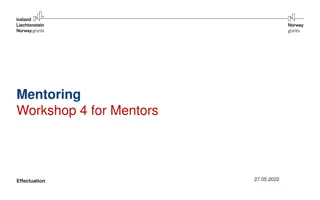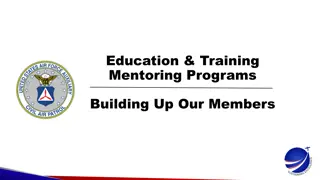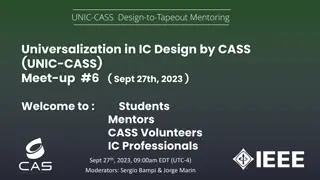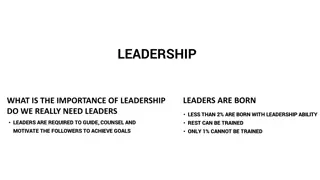Navigating Leadership Development and Mentoring in Higher Education
Navigating the complexities of higher education, this session explores ways to support part-time colleagues through mentorship. Topics include the value of mentoring, best practices, and the differences between formal and informal mentoring. Participants discuss various mentoring models and envision ideal support structures on their campuses.
Download Presentation

Please find below an Image/Link to download the presentation.
The content on the website is provided AS IS for your information and personal use only. It may not be sold, licensed, or shared on other websites without obtaining consent from the author. Download presentation by click this link. If you encounter any issues during the download, it is possible that the publisher has removed the file from their server.
E N D
Presentation Transcript
Leadership Development: Mentoring and the Mentee
Our Session Today Navigating the world of higher education is complex! While many of our colleagues seem undeterred by challenges and uncertainty, reiterating the realities of the educators journey in support of student success is imperative during these dynamic times. How can we support the leadership development of part-time colleagues within our system through formal and informal mentorship? Join this session to explore tools, resources, and strategies intended to guide, empower, and inspire those traversing the world of higher education. 2
Presenters Karla Kirk, ASCCC North Representative Auguste Kouadio, Fresno City College 3
Session Overview Mentoring 101: The Value of Mentoring Discussion: What does mentoring look like on your campus? ASCCC Leadership Development: Faculty Empowerment Leadership Academy (FELA) ASCCC Resource: The Mentoring Handbook Q&A 4
Mentoring 101: Best Practices Mentoring new faculty can extend beyond syllabus creation and classroom management. Mentoring new faculty is essential for faculty to find their fit on the campus. Mentoring can include out of classroom campus skills and familiarity with policies and procedures. Mentors don t have to have all the answers, and should be willing to listen and share knowledge. 5
Informal and Formal Mentoring INFORMAL Faculty connect with colleagues within their department or division, or through past professional relationships. Mentors and mentees meet informally and address general issues as they arise. FORMAL Faculty are intentionally connected with recruited and trained mentors through an institutionally recognized and/or supported program. Mentors and mentees meet formally in structured professional development activities as well as informally to address established goals and general issues. 6
Discussion: What does mentoring look like on your campus? Prompt #1 Formal and/or Informal Mentoring Part-time Faculty Onboarding Equity Centered Professional Development cohorts Learning Communities Prompt #2 What would you like to see on your campus? 7
Faculty Leadership Development The Faculty Leadership Development Committee creates resources to assist local academic senates in the development and implementation of policies that ensure faculty primacy in faculty leadership and professional development. The committee assesses the Academic Senate s professional development offerings and makes recommendations to the Executive Committee on policies and practices for faculty professional and leadership development activities at a statewide level 8
Faculty Empowerment Leadership Academy (FELA) Faculty Empowerment and Leadership Academy (FELA), a one-to-one mentoring program designed to meet the needs of our diverse faculty in the California community college system. The program will provide opportunities for participants to engage in empowerment for personal and professional development, including networking opportunities and support through an entire academic year. 9
Faculty Empowerment Leadership Academy Mission TO CONNECT: Providing one-on-one mentoring to diverse faculty for personal and professional development with mentors who are campus leaders and/or administrators. TO EMPOWER: Creating safe and brave spaces for courageous conversations to investigate equity, diversity, and inclusion; to share personal and collective experiences on race, privilege, and oppression; and to embolden new faculty leaders to advocate for transformative change on their campuses. TO GUIDE: Providing networking opportunities and sharing guidance for navigating the systems of higher education. The focus of the mentoring will be to address the specific goals of the mentee. 10
ASCCC Mentoring Handbook ASCCC recognizes that mentorship is a key component to the success of new faculty, both for those employed full-time or part- time, as well as for those seeking employment opportunities in the California community colleges. In response to two resolutions from Spring 2016: Resolution Number 01.01 and Fall 2020: Resolution Number 01.02, this handbook was developed by the ASCCC Part- time Committee in 2021 to provide a written guide and repository of resources for the development of mentorship programs at California community colleges. ASCCC Mentorship Handbook 2021 11
Mentoring Programs (ASCCC Mentoring Handbook) Grow your Own Programs: From Student to Part-time Grow-your-own programs are designed to more like pipelines to support students in becoming instructors or college employees upon completion of their education. One on One Mentoring Programs A few colleges in the California community college system formally provide mentoring programs for part-time faculty employed in the system. For example, the ASCCC Faculty Empowerment and Leadership Academy shows a statewide model for part-time and full-time faculty in historically marginalized communities, such as Black, Indigenous, People of Color, and women. These programs provide one-on-one mentoring, and some may also have small group mentoring opportunities where two or more mentees are paired to one mentor. 13
Call it Out: Qualities of a + MENTOR! Call out to Participants: What are qualities that make a great mentor? How do you maximize leaning time as a mentee? 14
Tips for the MENTOR Set expectations: Support, yet challenge, your mentees. ... Be a positive role model. ... Be genuinely interested in your mentee as an individual. ... Share your experiences and insights. ... Ask questions. ... Act as a sounding board. ... Provide helpful feedback. ... Acknowledge achievements. Listen! Set ego aside Set insecurity aside Recognize success and successes 15
Resources Faculty Empowerment Leadership Academy (FELA) ASCCC Mentoring Handbook Mentoring Resolutions Develop a Resource to Communicate and Encourage Part-time Faculty Leadership Mentoring Programs for Part-Time Faculty Faculty Mentoring 16



